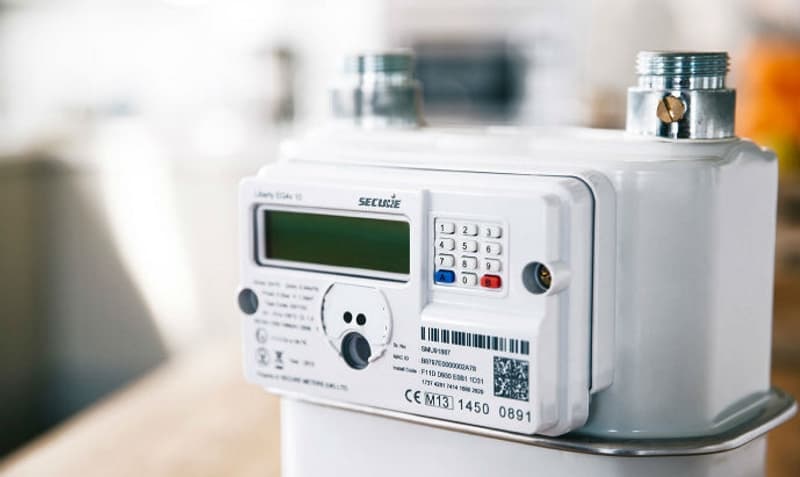What Is A Smart Meter?

Smart meters are a way of allowing you to see exactly how much electricity and gas you use, But in addition to this they also pass this information on to your supplier. In theory they should therefore help you see exactly how efficient you are in your energy usage. But they have come under a lot of criticism lately. Lets examine the pros and cons of smart meters.
What Is A Smart Meter?
A smart meter replaces your gas mater and your electricity meter. They provide readings for your supplier so you don't have to provide readings, there are no more estimated bills and when you get an' in home display' you can see exactly how much energy you are using. And this is meant to be the big positive. That if you can see where you are using energy you can look to reduce that usage and therefore your energy bills should come down.
Will A Smart Meter Save You Money?
In theory the idea is that if there are no costs to the energy suppliers in employing meter readers then these savings will be passed on to the consumer. However in practice some energy suppliers have admitted to putting up prices to pay for the rollout.The other thing to bear in mind is that having a smart meter will not automatically save you money. You will only save money if you act on the information it provides you with. One of the best ways to reduce your energy bills is to keep an eye on tariffs and switch supplier. But there does seem to be an issue with smart meters and changing provider.
Smart Meters And Switching
If you were one of the first people to get a smart meter then you are known as first generation. In some cases when these customers go to switch supplier then their meter goes 'dumb'. This means you lose some functionality and have to start doing readings again. However, don't let this put you off switching. The energy companies are committed to upgrading the first generation meters so this wont be a problem in the long term. Another solution may be to replace your first generation meter with a second generation one.
How Do You Get A Smart Meter?
Each energy supplier is rolling out smart meters area by area. If you are keen to get one and don't want to wait you could ask your supplier. You may still have to wait but you may then be the first in the queue to get one. The key thing to remember is that smart meters have to be offered to you but they are not compulsory, in other words you can say no.
Best Ways To Reduce Your Gas And Electricity Bills
The key thing to do is to ensure you are on the most efficient tariff. If you are on s standard tariff then you could save significant amounts by switching provider, To do this go to any comparison website and based on your usage you can see if you there are savings to be made. Other things to look out for are paying by monthly direct debit. This means that each month you pay the same amount, some energy suppliers offer you savings if you do this. Some suppliers will repay you if you start to build up a big credit. You can also look at how energy efficient you are by looking at your boiler and things like cavity, wall and loft insulation.
Then of course there is simply try to use less energy.You can turn down the heating in your home, remember to turn off lights when you leave a room and don't leave electrical goods like televisions on stand by. You may also want to consider a smart thermostat which can cost a bit to to buy but allow you to control your heating when you are out and about.
You Might Like
Switching Your Energy Supplier
With energy costs going up now has never been a better time to see if you can get a better deal. We take you through the process of changing your energy supplier.Energy Tariffs Explained
It is so important now to shop around for the best energy tariff. But what do they all mean?How To Switch To Green Energy
Want to use more renewable electricity sources? Switch to green energy sources after reading our quick guide on what it means.Deciphering The ‘Smart Casual’ Dresscode
When's it smart, when's it not. Trying to workout what smart casual means can be a nightmare, so check our quick guide for some help.Saving Money On Energy With Dual Fuel
If you want to save money on your business energy costs, then Dual Fuel from any one of the utility companies could be just the thing.
Useful Websites
- Confused.com
Discover cheap insurance, loans, mortgages and credit cards with ease. You can even switch your utilities with their comparison service. All major providers - plus you get a robot toy to boot! - npower
Through the combined strength of MEB, CALORTEX and National Power, offer unrivalled choice and excellent service for all your gas and electricity needs. - Energylinx
The UKs largest specialist domestic electricity and gas price comparison service. Compare the prices of all Utility companies in seconds. Save £100s - Northern Ireland Electricity
Corporate web site of a first rate performer in the eyes of its investors, its customers and staff - Eastern Group
Integrated electricity and gas groups, part of The Energy Group PLC, incorporating Eastern Generation Ltd, Eastern Electricity, Eastern Natural Gas, British Power International and Peabody Coal, the l - Power Brokers (UK) Ltd
All domestic gas and electricity tariffs compared - Add Your Website Here